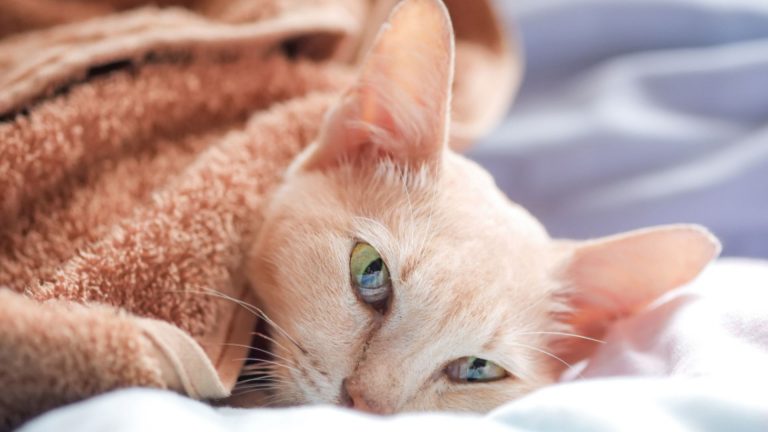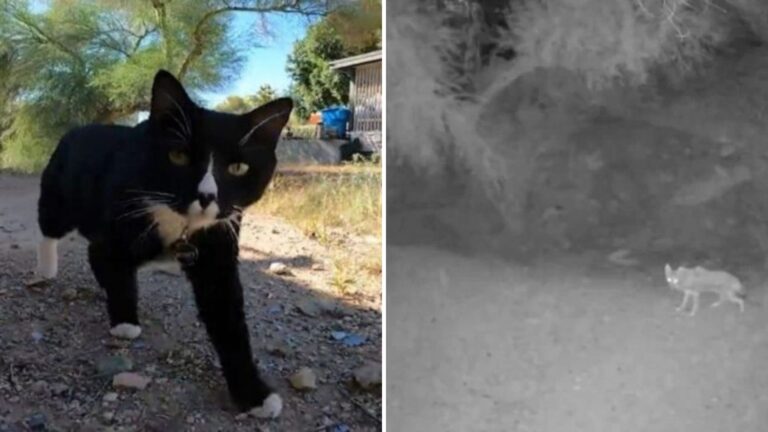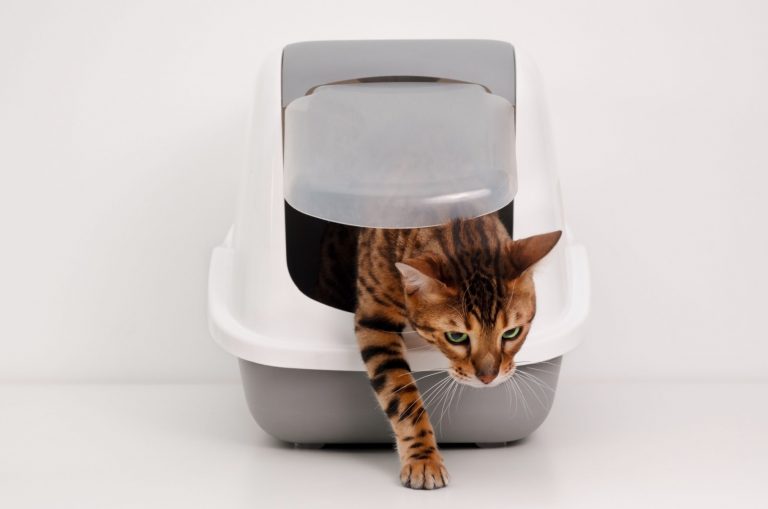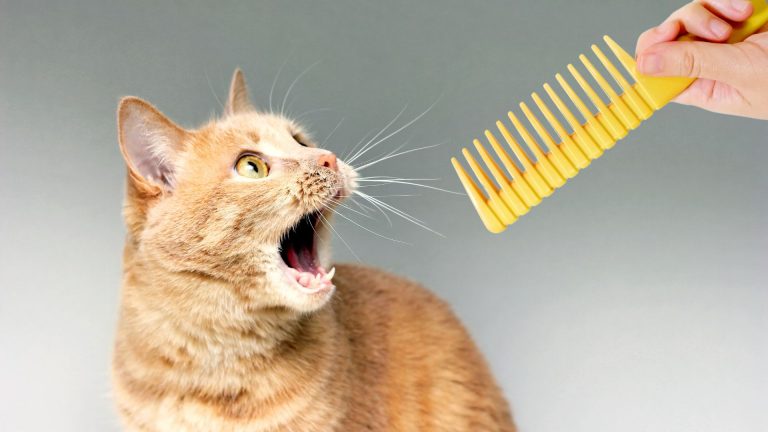Why Is A Cat Crying Outside At Night And How Can I Stop It?
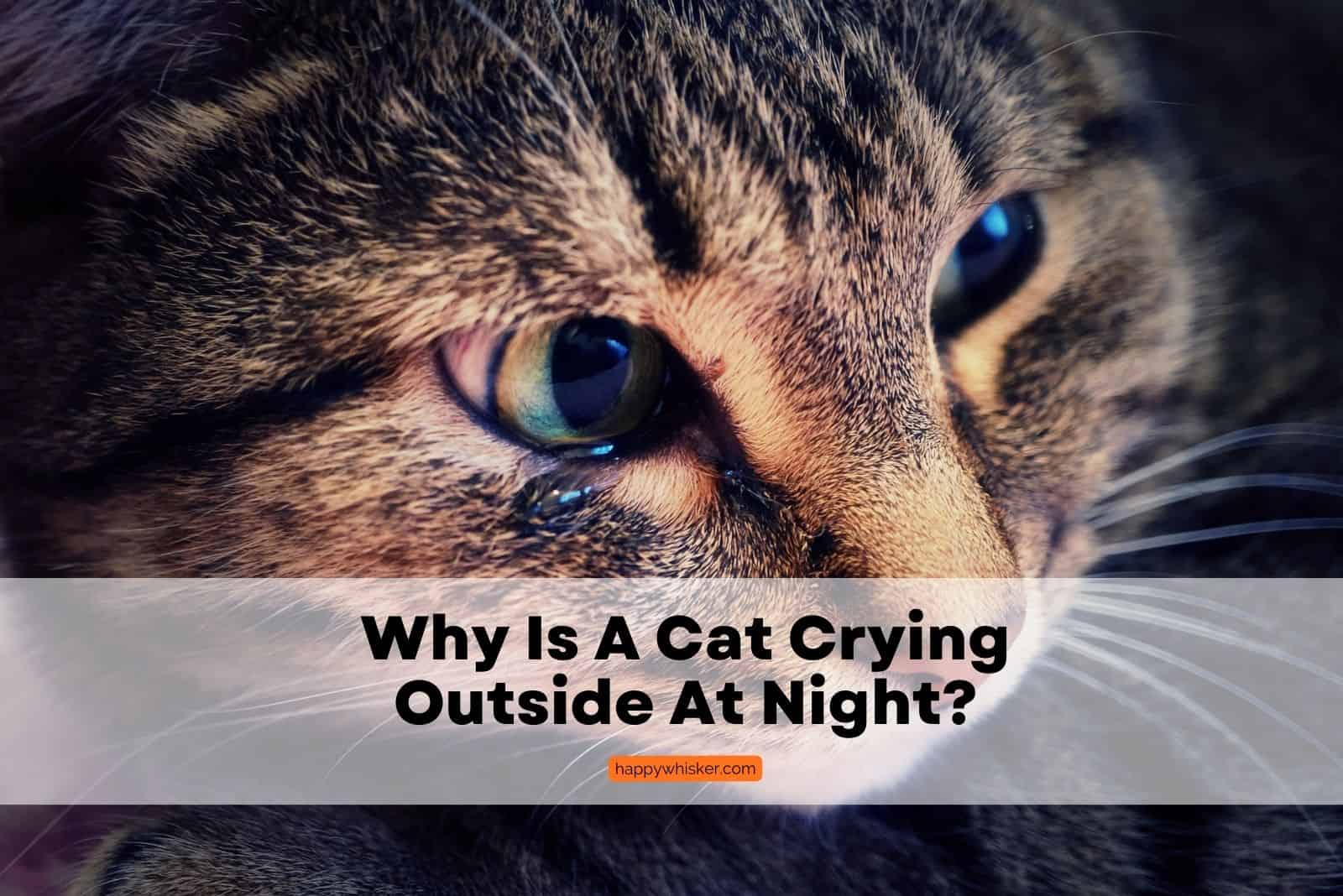
Are you being kept awake at night by the sound of a stray cat’s (or your own cat’s) endless crying outside your window?
Many of us have experienced the frustration of trying to sleep while a furry companion serenades us with their sorrowful meows…
In this article, we’ll explore the possible reasons for a cat crying outside at night and offer tips for stopping it!
Why Is A Cat Crying Outside At Night?
Caterwauling is a type of feline vocalization; a loud, distinctive crying or yowling sound that cats often make, especially at night.
If you have a cat that cries outside in the dark, you know how frustrating it is…
Before we jump into solving the issue, let’s go over the most common reasons why a cat (either your own or a stray cat) might be doing it.
11 Potential Reasons Why A Cat Is Crying Outside At Night
1. Hunger Or Thirst
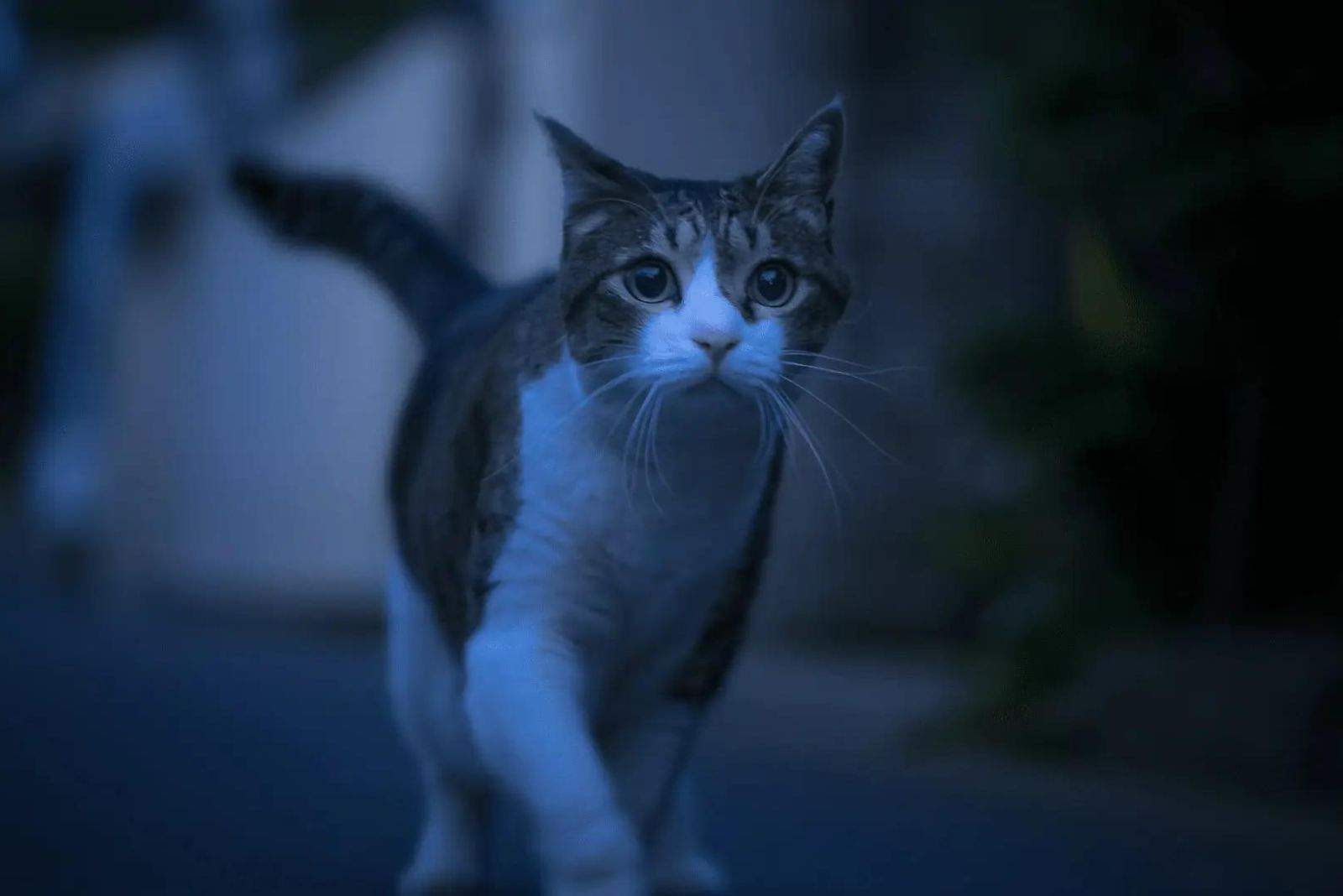
Outdoor cats can be hungry and thirsty and show it by crying outside at night.
Cats are instinctually driven to seek food and water, and they may vocalize as a way of getting your attention and communicating their needs.
This is more likely to happen with feral cats crying outside your window, as I’m sure you’re feeding your outdoor cat on time!
2. Pain Or Discomfort
Cats can make vocalizations, such as crying, when they are experiencing pain to alert their owners (or anyone willing to help) to their discomfort.
If a cat is crying or making unusual vocalizations, pay attention and try to determine if it may be in pain.
You may notice a cat showing other signs of pain, such as lethargy, loss of appetite, difficulty breathing, and changes in behavior.
3. Anxiety Or Stress
Cats can become stressed and anxious for a variety of reasons.
These can range from significant changes in the environment, such as new pets or people in the home, to more subtle changes, such as routine changes.
Other common causes of stress and anxiety in cats include:
• Fear of loud noises or sudden movements
• Unfamiliar people or animals in the home
• Changes in the environment (such as moving to a new home)
• Inadequate or no socialization during kittenhood
• Illness or injury
• Poor nutrition
• Aging or a declining sense of smell or sight
4. Sickness
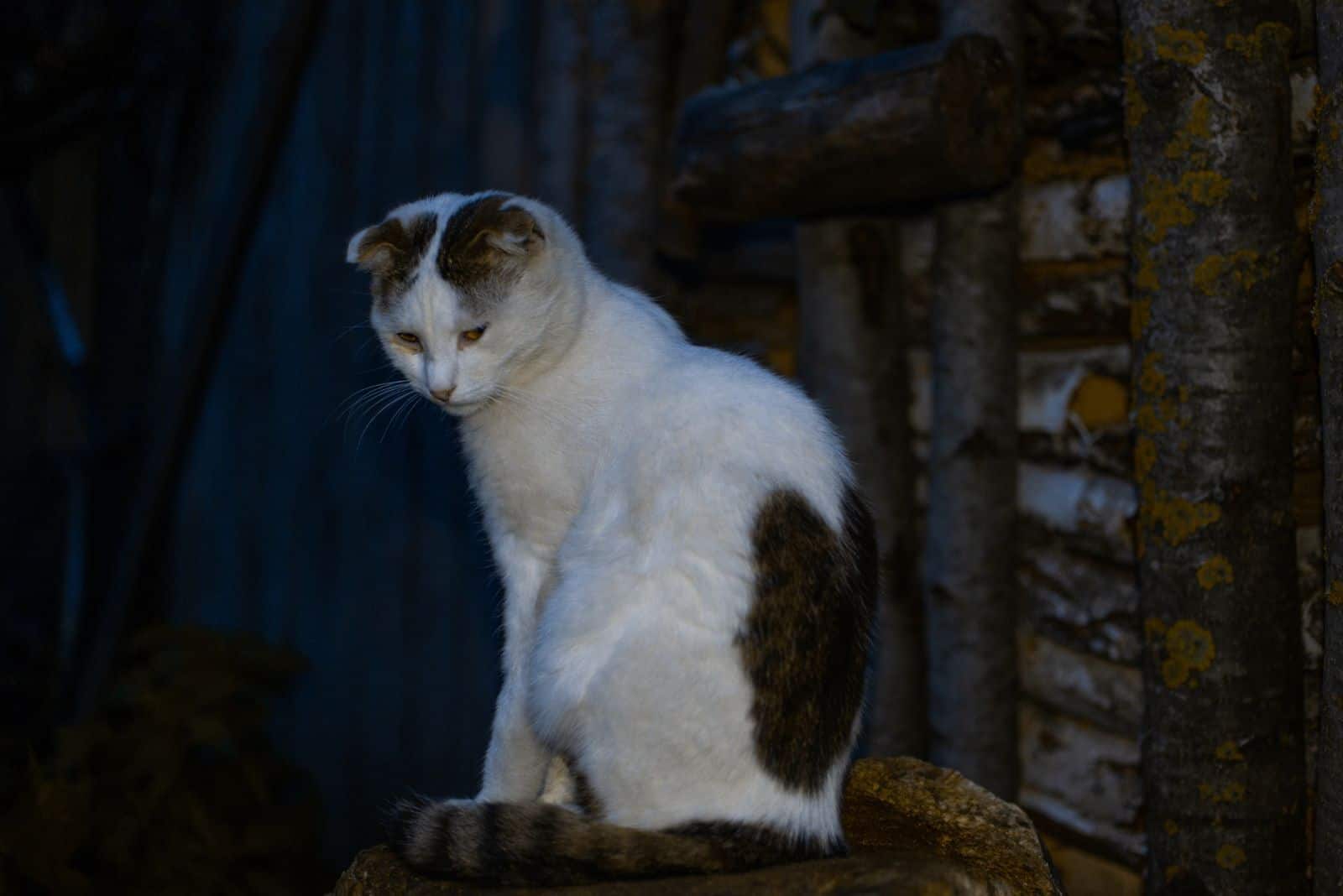
If you have a cat crying in the middle of the night, the kitty might be sick.
Several medical issues can cause a cat to be overly vocal, including:
• Hyperthyroidism
One possible cause of crying in cats is hyperthyroidism, a condition characterized by an overactive thyroid gland.
Cats with hyperthyroidism may exhibit various symptoms, including weight loss, increased appetite, increased thirst and urination, and increased vocalization.
• Dental Problems
Cats with dental problems, such as tooth infections or abscesses, may become excessively vocal due to pain and discomfort.
• Urinary Tract Issues
Cats with urinary tract infections or other issues may become excessively vocal due to pain and discomfort when trying to urinate.
5. Boredom Or Frustration
If your cat is crying outside at night, it could be because they are feeling bored or frustrated.
Both outdoor and indoor cats may become restless if they lack sufficient stimulation or have too few activities.
This can lead to vocalizations, such as crying or meowing, as a way for the cat to seek attention or express their needs.
6. Loneliness
Cats may cry or make other vocalizations if they are feeling lonely or isolated.
Cats are social animals and can become lonely if not provided with enough companionship.
Signs of loneliness in cats can include excessive meowing or vocalization, decreased appetite, decreased activity, and even aggression.
7. Separation Anxiety
Why does my cat meow at night?
Cats can feel anxious or upset when separated from their owners or sources of comfort and security, such as when their owner goes on vacation or works long hours.
Separation anxiety is a behavioral disorder that can affect cats when they are left alone for extended periods.
Signs of separation anxiety in cats can include pacing, excessive vocalization, inappropriate elimination, and destructive behavior.
8. Attention-Seeking
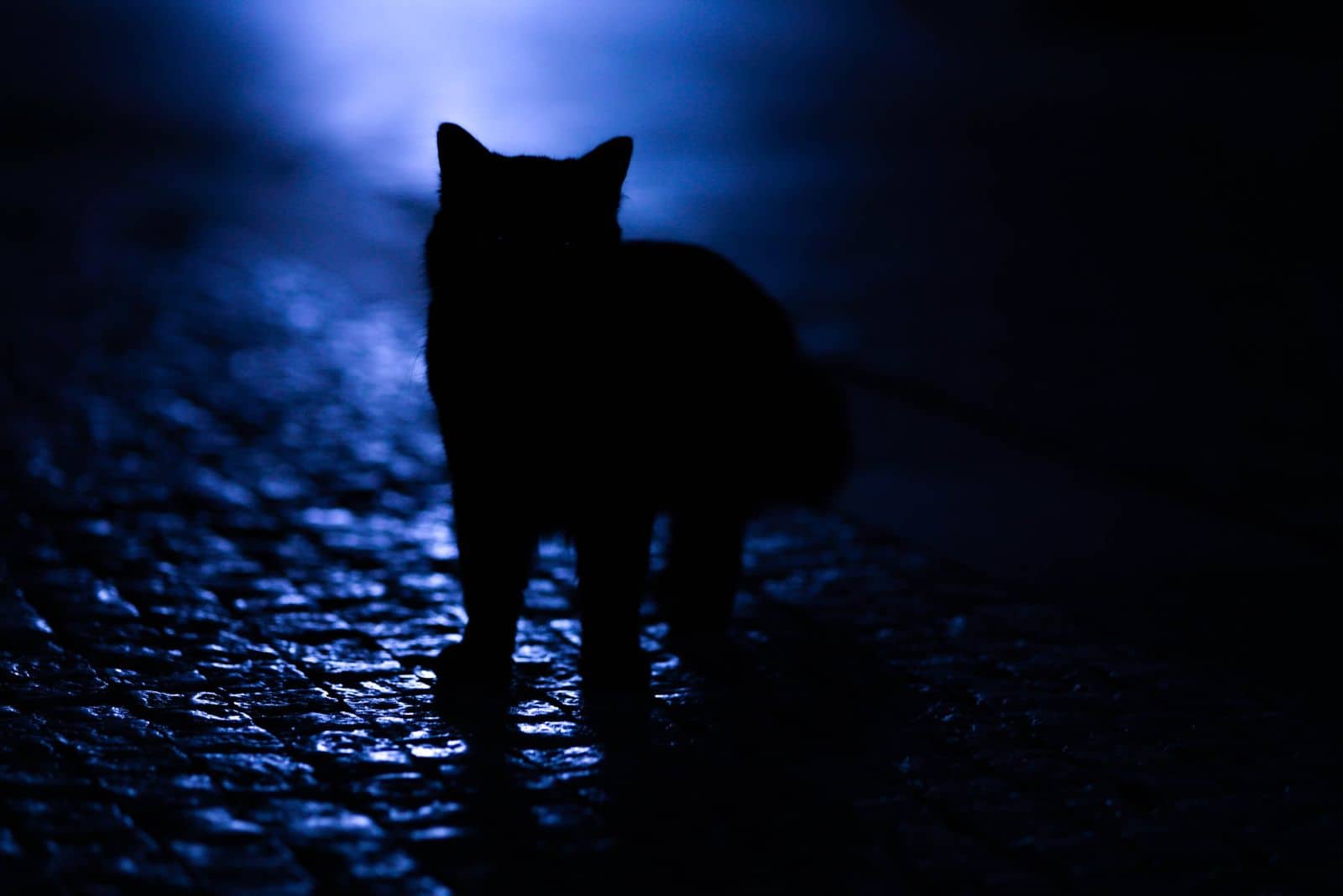
If you hear a cat crying outside at night, It could also be a sign that they are seeking attention.
Cats may seek attention in various ways, such as meowing, rubbing against your legs, and purring.
Cats may differ in attention-seeking behavior, with some being more reliant on their owners for attention and others being more independent and not seeking as much attention.
9. Female Cat Might Be In Heat
Female cats are said to be in heat when they are ready to mate. During this time, they may exhibit increased vocalization, including yowling, meowing, and caterwauling, to attract male cats.
If you have an outdoor cat in heat, you may notice more male cats coming around your home and responding to your cat’s mating call.
If you have an outdoor cat, consider spaying her. Apart from reducing unwanted vocalizations in the middle of the night, there are many other benefits to spaying a cat (but we’ll talk about that some other time!).
10. Cognitive Dysfunction
Feline cognitive dysfunction is a common condition affecting seniors and older cats.
This condition is more common in senior cats but can also occur in younger cats due to underlying medical conditions.
Symptoms include changes in behavior, such as increased vocalization, confusion, and disorientation.
11. Territorial Behavior
If your cat is crying outside at night, it could be that they are trying to mark their territory and let all other cats in the area know: This is mine!
Cats may also cry or vocalize when they encounter a new or unfamiliar cat in their territory to communicate their presence and establish dominance.
How Can I Stop A Cat From Crying Outside At Night?
As you saw, there are a variety of potential causes for this behavior. But now let’s focus on what we can do about it.
Below, I’ve listed tips on how to stop this behavior.
Whether you have an indoor or outdoor cat, these strategies can help you manage your cat’s vocalizations and create a peaceful home environment.
1. Find A Way To Stop Cats Coming To Your Yard
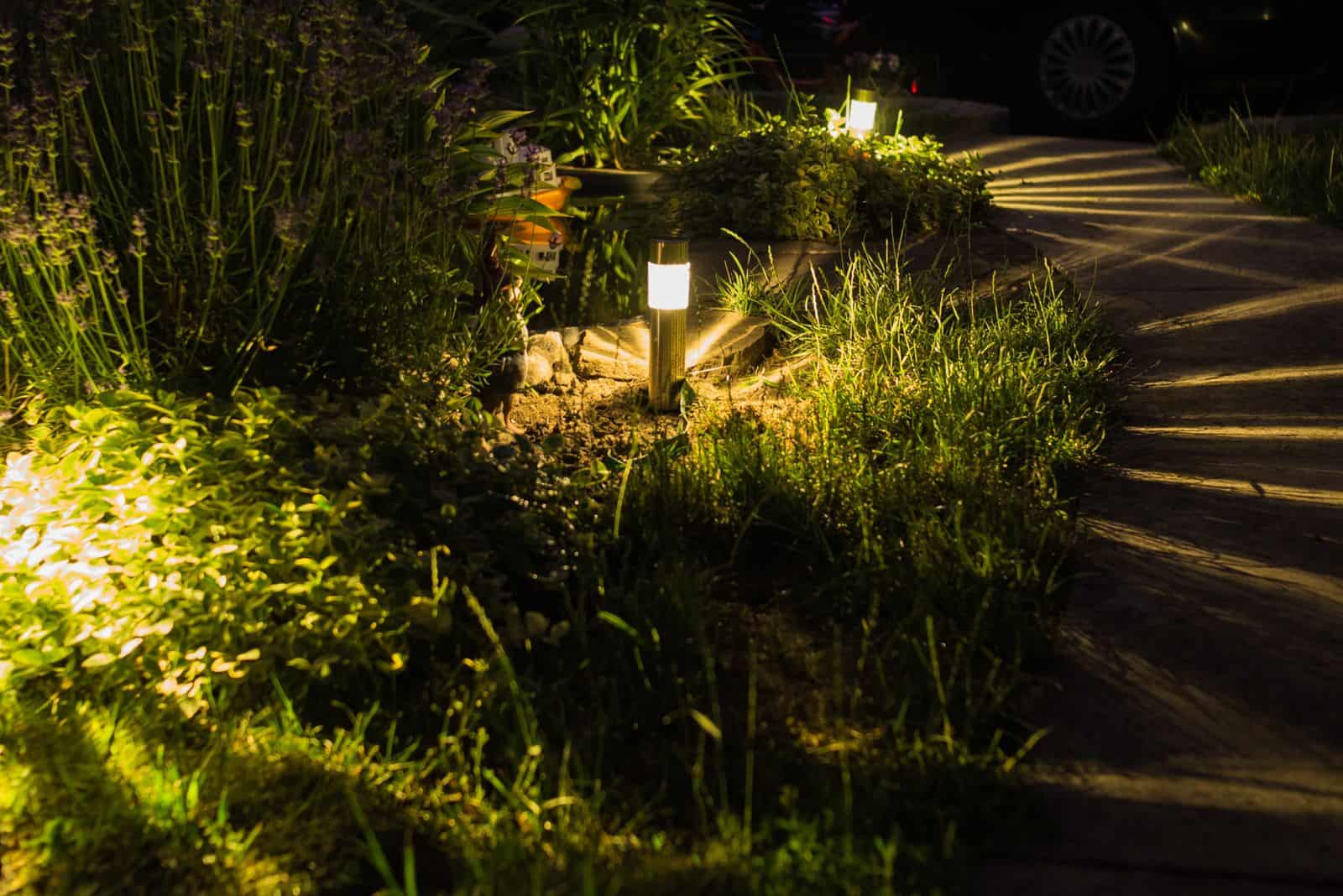
If a cat waking you up at night with its crying is not your own cat, you might be eager to simply make the cat stop coming to your yard.
You can do so by:
• Installing motion-activated sprinklers
• Installing motion-activated lights in your yard
• Adding plants that cats don’t like
However, if the cat in question is hurt or sick in any way and crying as a way to say “Help me”, I think you should first try to help the poor kitty.
2. Identify The Underlying Cause Of Your Cat Crying At Night
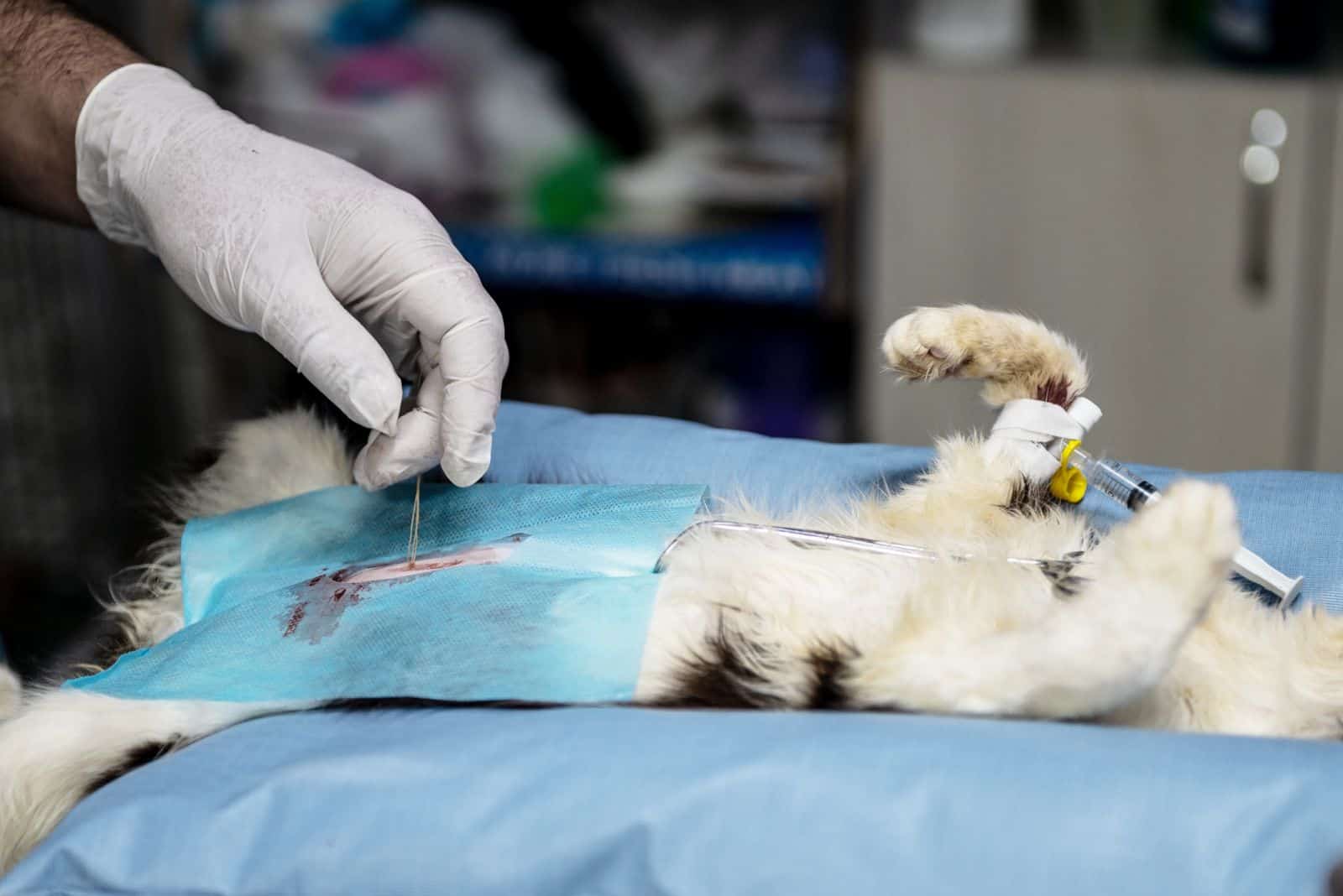
If the cat waking you up at night is your own outdoor kitty, the best thing you can do is find out what’s causing your cat to cry.
It’s important to understand the reason for your cat’s crying in order to address the issue effectively.
• Make Sure Your Cat Is Spayed Or Neutered
If your cat is crying in the middle of the night to attract a mate, I suggest spaying or neutering your feline.
That should reduce the excessive vocalizations in the middle of the night, as well as many other undesired behaviors, as well as pregnancies!
• Make Sure Your Cat Has Access To Food And Water
If your cat is crying because they are hungry or thirsty, ensure they have access to cat food and water at all times.
Check your cat’s water and food bowl regularly – are they filled or not?
• Provide Your Cat With Plenty Of Mental And Physical Stimulation
Cats can become anxious or bored if they don’t have enough to do, leading to crying.
Cat owners, it’s important to ensure your cat has plenty of toys and activities to keep them entertained and engaged.
Even outdoor cats need an occasional play session!
• Try To Create A Calm And Consistent Environment
Cats can become anxious or stressed in response to changes in their environment.
Try to keep your cat’s routine as consistent as possible and provide a calm and peaceful environment. This is especially important if you’ve recently moved.
Consider using a pheromone diffuser. Pheromone diffusers release synthetic pheromones that can help reduce your cat’s anxiety and stress and hopefully stop your crying cat from waking you up at night!
• Provide A Safe, Quiet Place For Your Cat To Retreat To
If you’ve recently moved and your cat has lost its previous territory, it might be good to provide your cat with a new space to claim as its own, such as a covered porch or a sheltered area of the yard.
This can effectively reduce your cat’s crying in the middle of the night (or during the day).
• Consult With A Veterinarian Or A Feline Behavior Specialist
If you are unable to resolve the issue on your own, consult with a veterinarian or a feline behavior specialist for further assistance.
They can help identify any underlying medical issues and offer additional behavior modification advice.
Fun Facts: There’s A Lot Of Superstition Around A Cat Crying Outside At Night
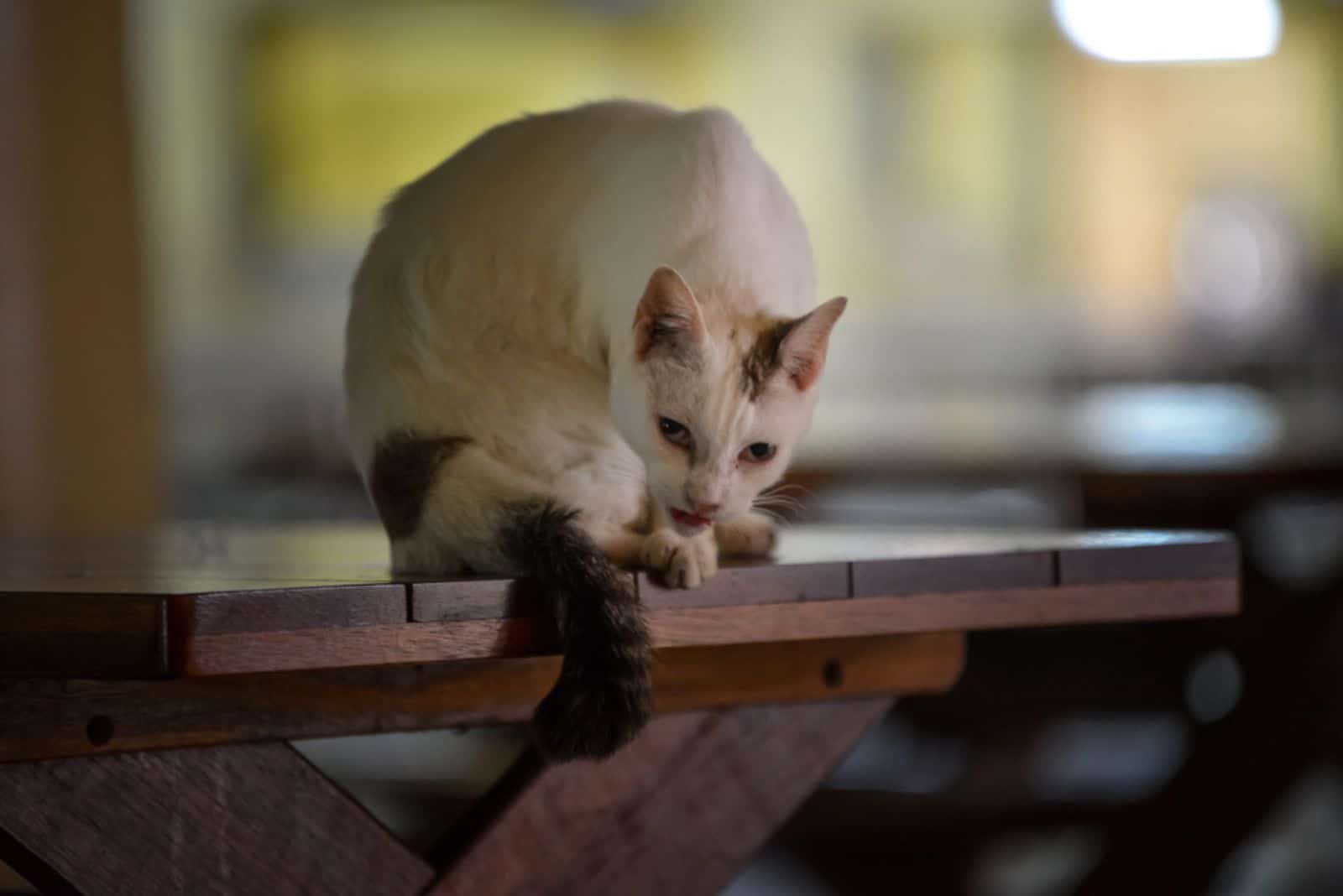
There is a great deal of superstition about a cat crying outside at night.
Let me list a few fun facts about this topic:
🐾 It is believed the cat crying at night can cause bad luck.
🐾 In some cultures, the cat is believed to be trying to ward off evil spirits.
🐾 In others, it is believed that a cat crying outside at night is a sign that death is coming.
🐾 Some people believe that the white color of the cat is associated with ghosts.
🐾 In some cases, it is even believed that the cat is trying to bring good luck.
Wrapping Up
Today, we’ve explored the many possible reasons for a cat crying outside at night, as well as how to stop it.
The best thing you can do is find out what’s causing the cat to cry, and if you’re not sure what’s causing your cat’s issue, go see a vet.
I’m sure you’ll try your best to ensure that both you and your furry companion get a good night’s sleep!
Good luck!

